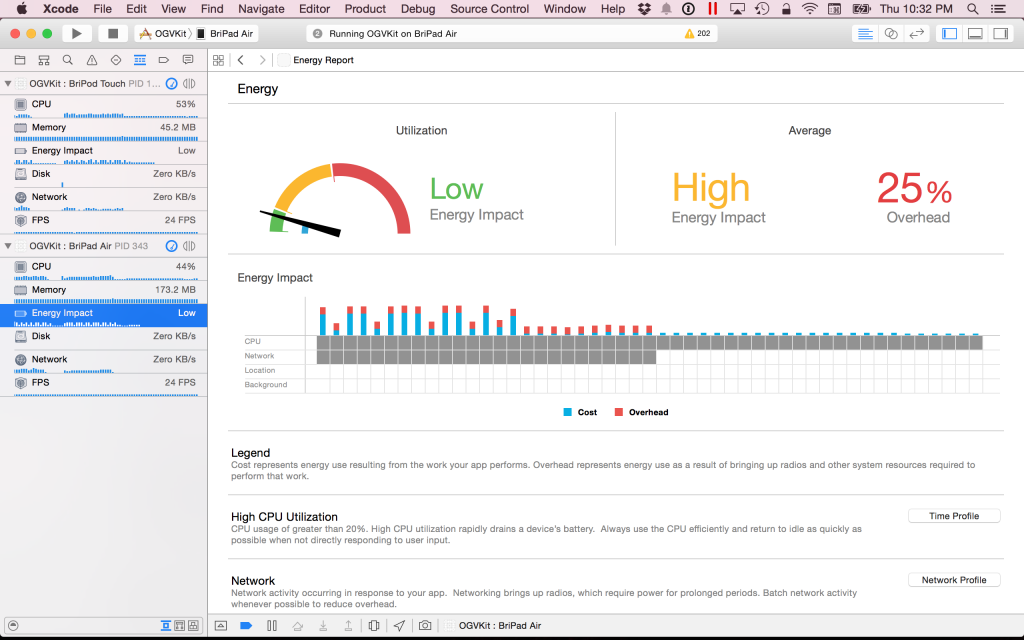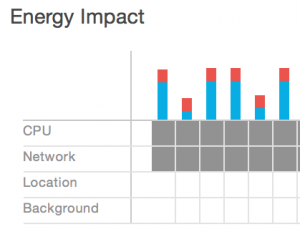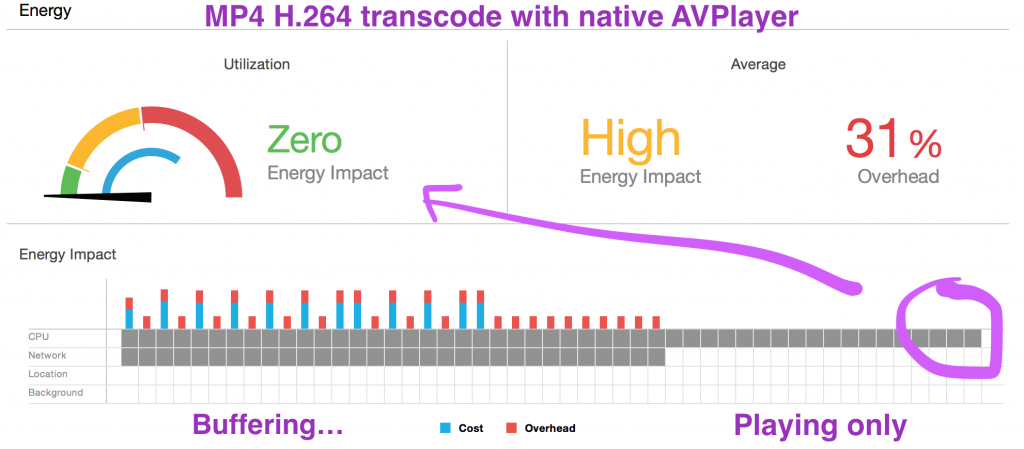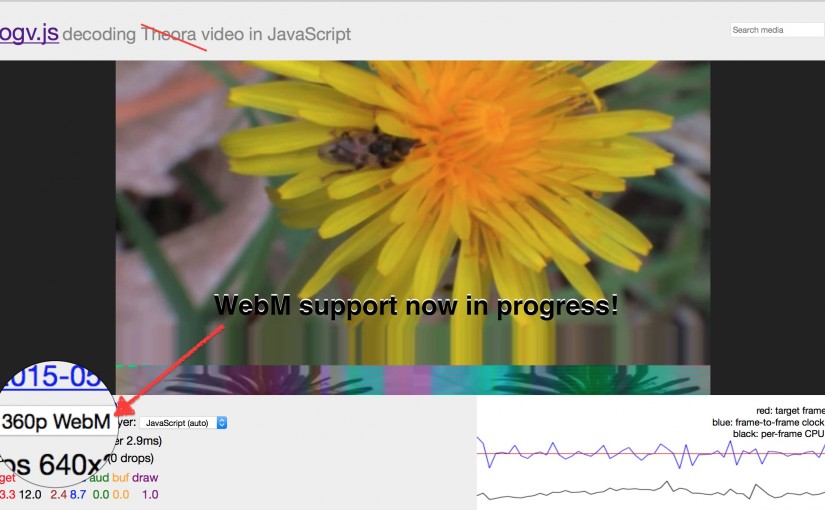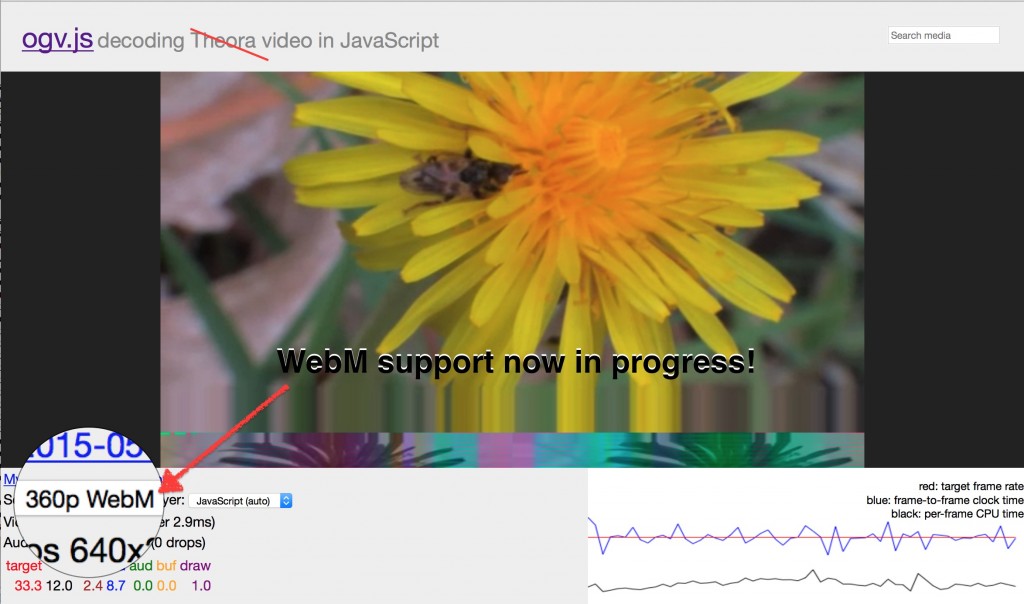Mirror of mailing list post on wikitech-l and related lists
I’ve been passing the last few days feverishly working on audio/video stuff, cause it’s been driving me nuts that it’s not quite in working shape.
TL;DR: Major fixes in the works for Android, Safari (iOS and Mac), and IE/Edge (Windows). Need testers and patch reviewers.
ogv.js for Safari/IE/Edge
In recent versions of Safari, Internet Explorer, and Microsoft’s upcoming Edge browser, there’s still no default Ogg or WebM support but JavaScript has gotten fast enough to run an Ogg Theora/Vorbis decoder with CPU to spare for drawing and outputting sound in real time.
The ogv.js decoder/player has been one of my fun projects for some time, and I think I’m finally happy with my TimedMediaHandler/MwEmbedPlayer integration patch for the desktop MediaWiki interface.
I’ll want to update it to work with Video.js later, but I’d love to get this version reviewed and deployed in the meantime.
Please head over to https://ogvjs-testing.wmflabs.org/ in Safari 6.1+ or IE 10+ (or ‘Project Spartan’ on Windows 10 preview) and try it out! Particularly interested in cases where it doesn’t work or messes up.
Non-JavaScript fallback for iOS
I’ve found that Safari on iOS supports QuickTime movies with Motion-JPEG video and mu-law PCM audio. JPEG and PCM are, as it happens, old and not so much patented. \o/
As such this should work as a fallback for basic audio and video on older iPhones and iPads that can’t run ogv.js well, or in web views in apps that use Apple’s older web embedding APIs where JavaScript is slow (for example, Chrome for iOS).
However these get really bad compression ratios, so to keep bandwidth down similar to the 360p Ogg and WebM versions I had to reduce quality and resolution significantly. Hold an iPhone at arm’s length and it’s maybe ok, but zoom full-screen on your iPad and you’ll hate the giant blurry pixels!
This should also provide a working basic audio/video experience in our Wikipedia iOS app, until such time as we integrate Ogg or WebM decoding natively into the app.
Note that it seems tricky to bulk-run new transcodes on old files with TimedMediaHandler. I assume there’s a convenient way to do it that I just haven’t found in the extension maint scripts…
In progress: mobile video fixes
Audio has worked on Android for a while — the .ogg files show up in native <audio> elements and Just Work.
But video has been often broken, with TimedMediaHandler’s “popup transforms” reducing most video embeds into a thumbnail and a link to the original file — which might play if WebM (not if Ogg Theora) but it might also be a 1080p original which you don’t want to pull down on 3G! And neither audio nor video has worked on iOS.
This patch adds a simple mobile target for TMH, which fixes the popup transforms to look better and actually work by loading up an embedded-size player with the appropriately playable transcodes (WebM, Ogg, and the MJPEG last-ditch fallback).
ogv.js is used if available and necessary, for instance in iOS Safari when the CPU is fast enough. (Known to work only on 64-bit models.)
Future: codec.js and WebM and OGVKit
For the future, I’m also working on extending ogv.js to support WebM for better quality (especially in high-motion scenes) — once that stabilizes I’ll rename the combined package codec.js. Performance of WebM is not yet good enough to deploy, and some features like seeking are still missing, but breaking out the codec modules means I can develop the codecs in parallel and keep the high-level player logic in common.
Browser infrastructure improvements like SIMD, threading, and more GPU access should continue to make WebM decoding faster in the future as well.
I’d also like to finish up my OGVKit package for iOS, so we can embed a basic audio/video player at full quality into the Wikipedia iOS app. This needs some more cleanup work still.
Phew! Ok that’s about it.


